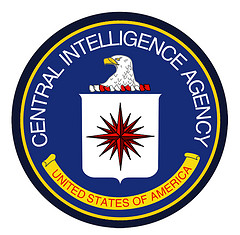This article was published earlier at WGBH News.
Within moments of the announcement that The Boston Globe had won the Pulitzer Prize for Breaking News Reporting, Martine Powers tweeted from the newsroom. “This was a story none of us wanted to cover,” she quoted editor Brian McGrory as saying. The staff, she said, then observed a moment of silence at McGrory’s request for the victims of the Boston Marathon bombings.
The Globe easily could have won two or three Pulitzers for its coverage of the bombings and their aftermath. The breaking-news award, of course, was well-deserved, and frankly it was unimaginable that it would go to anyone else. But the paper also had worthy marathon-related finalists in Breaking News Photography (John Tlumacki and David L. Ryan) as well as Commentary (Kevin Cullen, who emerged as the voice and conscience of the city after the attack).
McGrory’s classy response to winning underscores the sad reality that the Globe’s excellent coverage was driven by a terrible tragedy — the worst terrorist attack on U.S. soil since Sept. 11, 2001. (The Globe was also a finalist in Editorial Writing, as Dante Ramos was honored for a non-marathon-related topic: improving the city’s night life.)
The Pulitzer also caps what has been a remarkable year for the Globe. On Marathon Monday 2013, McGrory was relatively untested as editor and the paper’s prospects were uncertain, as the New York Times Co. was trying to unload it for the second time in four years.
The Globe’s marathon coverage — widely praised long before today’s Pulitzers were announced — have defined McGrory’s brief term as editor as surely as the paper’s pedophile-priest coverage (which earned a Pulitzer for Public Service) defined Marty Baron’s. Moreover, the Globe now has a local, deep-pockets owner in John Henry who’s willing to invest in journalism.
But the focus should be on Martin Richard, Krystle Campbell, Lingzi Lu and Sean Collier, as well as their families and all the other survivors. Good for McGrory for reminding everyone of that.
A couple of other Pulitzer notes:
• A lot of observers were waiting to see whether the judges would honor the stories based on the Edward Snowden leaks. They did, as the Pulitzer for Public Service went to The Guardian and The Washington Post.
Glenn Greenwald and Laura Poitras, then affiliated with The Guardian and now with the start-up First Look Media, as well as Barton Gellman of the Post, were the recipients of the Snowden leaks, which revealed a vast U.S. spying apparatus keeping track of ordinary citizens and world leaders both in the United States and abroad.
The choice is bound to be controversial in some circles. U.S. Rep. Peter King, R-N.Y., has already called the award “a disgrace.” But it was the ultimate example of journalism speaking truth to power, and thus was a worthy choice.
• The oddest move was the Pulitzer judges’ decision not to award a prize in Feature Writing. I thought it might go to the New York Times’ series “Invisible Child: Dasani’s Homeless Life,” or possibly to the Globe’s “The Fall of the House of Tsarnaev.” (I should note that neither of those stories was listed as a finalist.)
The Pulitzer process can be mysterious. But it would be interesting to see if someone can pry some information out of the judges to find out why they believed there wasn’t a single feature story in 2013 worthy of journalism’s highest honor.





